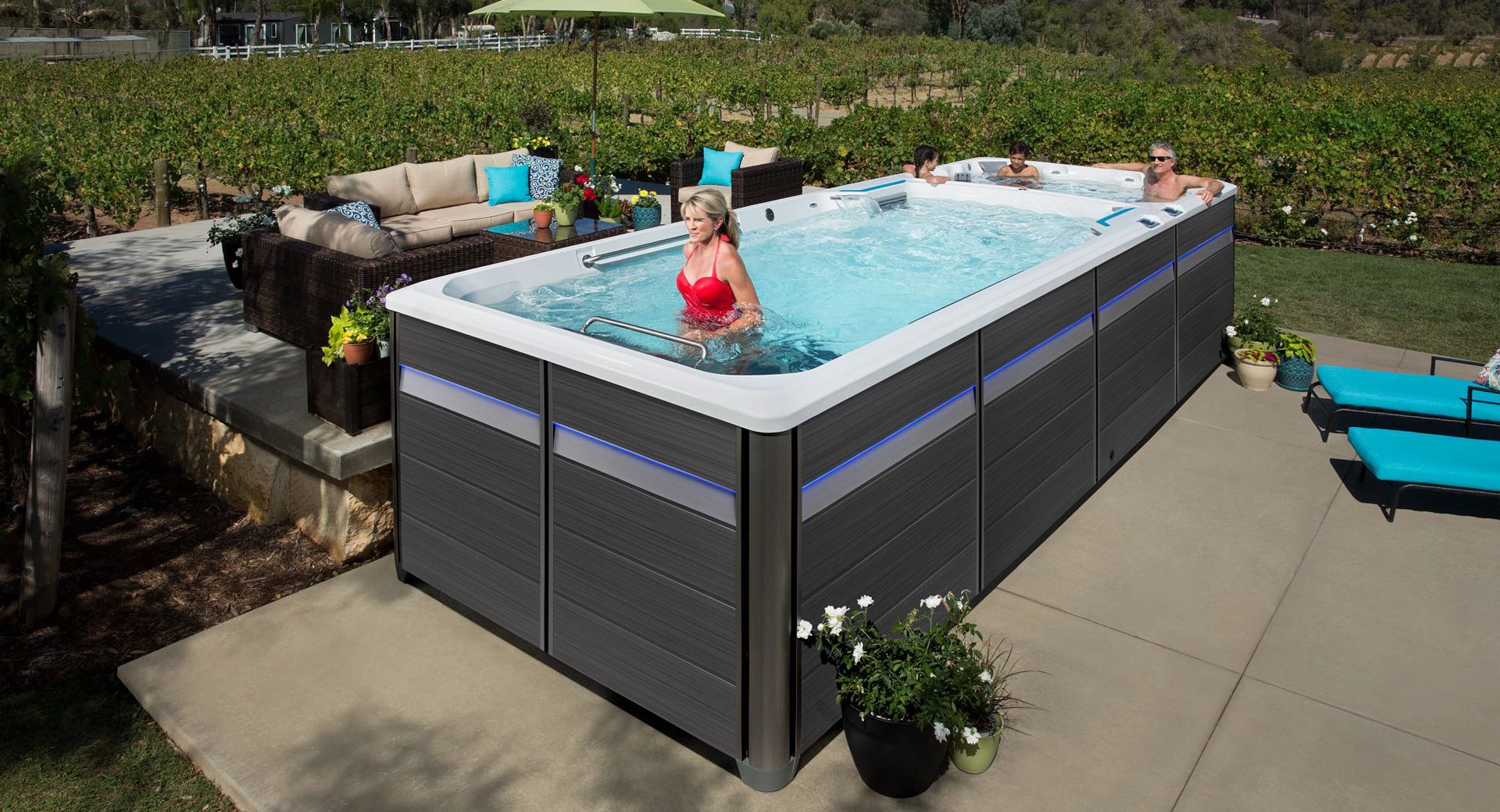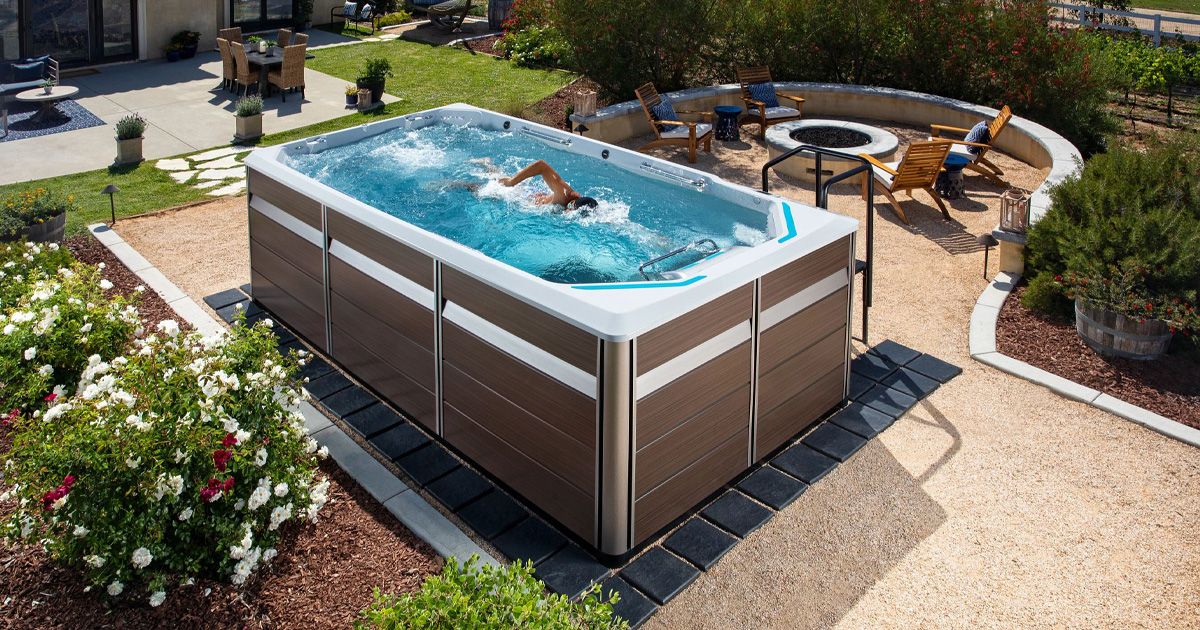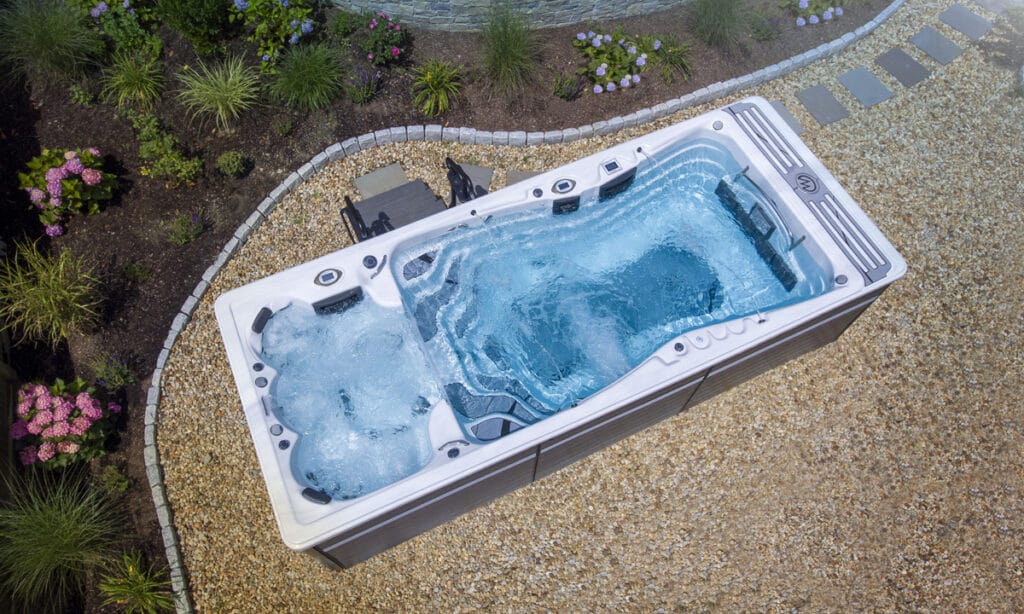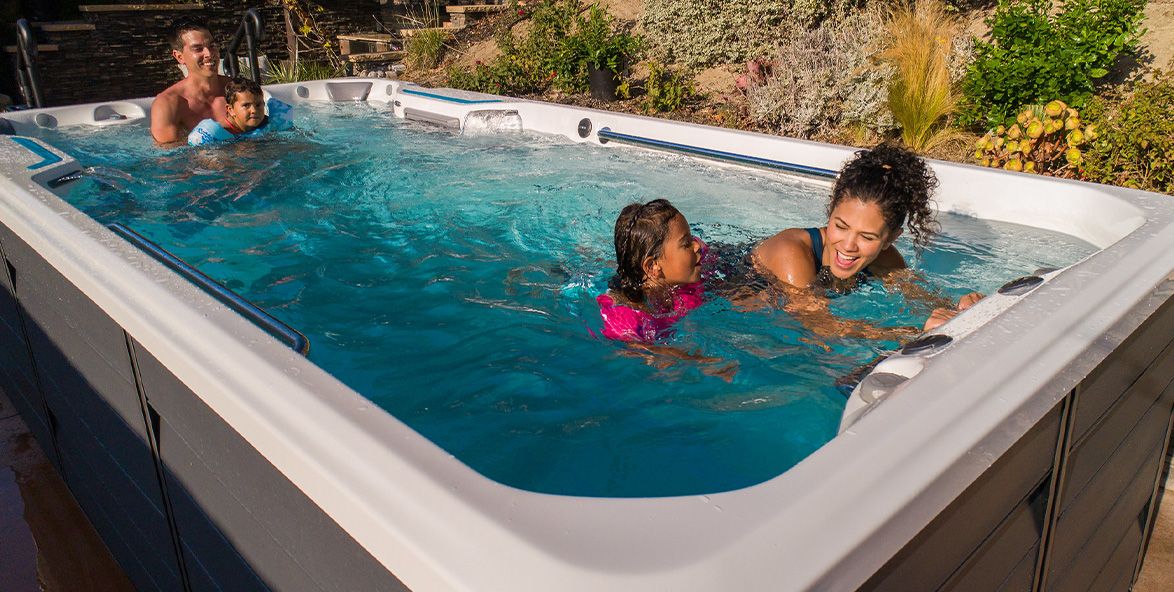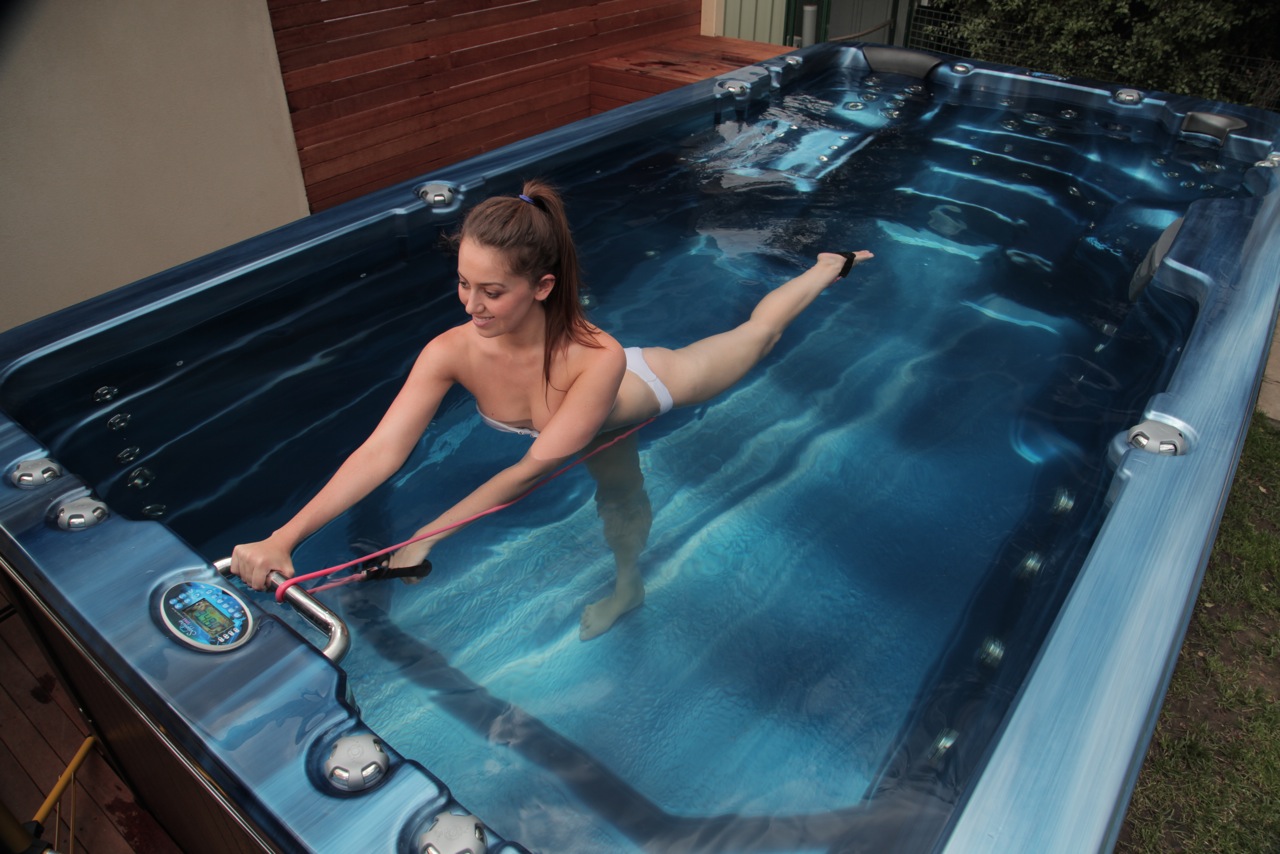Size and Portability
Spas are much smaller than pools averaging less than 500 gallons of water. In addition, most spas are portable in their design and construction, which allows them to be moved to another location. The size difference between pools and spas seems obvious.Use it as a pool instead of a hot tub – Simply don't heat it! That's it. As long as you treat the water and circulate it the way you would a hot tub, it's safe to dunk your human body into. During my initial research, I saw that people can buy adapters to cool their jacuzzi water, but I don't see a need for that.We often use the term 'hot tub' interchangeably with 'jacuzzi' but the two are actually different things. The main difference between hot tubs and jacuzzis is that hot tubs refer to a large tub of hot water, used for relaxation and hydrotherapy. Jacuzzi is a trademarked brand of hot tubs.
What is a hot tub used for : A hot tub is a large tub full of water used for hydrotherapy, relaxation or pleasure. Some have powerful jets for massage purposes. Hot tubs are sometimes also known as "spas" or by the trade name Jacuzzi. Hot tubs may be located outdoors or indoors.
Is it better to have a hot tub or pool
Compared with a home pool, a hot tub requires a lot less maintenance. Spend more time relaxing, and less time working! Pro: Cost. Compared to home pools, hot tubs come in at more affordable price points.
Can you use a hot tub like a pool in the summer : Despite the name, hot tubs don't always have to be hot. Although they are usually kept at temperatures between 99° F to 102° F, with a maximum heat of 104°F, you can lower the temperature for summertime use. Simply lower the temperature of your hot tub to roughly 85°F or turn off your heater altogether.
Avoid Bacteria By Not Submerging
But even so, it is still possible for some bacteria to be present, especially when there are multiple users in the hot tub with you. If you put your head underwater, you expose your mouth, nose, and eyes to these bacteria, and this can potentially lead to unwanted infection or illness.
If sitting in a warm tub of water is your cup of tea, with or without jets and bubbles, and you'e looking for a more cost-effective option, then a hot tub could be right for you. If you're ready to splurge on a higher end name brand hot tub with hydrotherapy jets, a Jacuzzi could be what you're looking for.
Is a Jacuzzi always hot water
Does a jacuzzi heat the water Heat pumps in jacuzzis heat the water and keep it constant at the temperature you set.Potential Health and Safety Risks
- Skin irritation: Hot tubs require regular maintenance to ensure the water is safe.
- Infection risk: Bacteria can thrive in hot and moist environments.
- Dehydration: The high temperature can cause dehydration, especially if you stay in the water for too long.
Improve Your Sleep
Beyond stress reduction, a hot tub can help you sleep, too. Here's how it works: “The warm water sends blood away from the brain to the surface of the skin to make you feel relaxed and drowsy,” according to the Better Sleep Council.
It is okay to hot tub every day if you choose. Even better news, using it daily can benefit your health. Studies on this topic agree that people who use their spa daily have less pain in their muscles and joints, they claim to have more energy, get better, deeper sleep, and some even reported minor weight loss.
What do people do with hot tubs in the summer : If you are asking yourself these questions, you might not be aware that hot tubs can also be used to refresh and rejuvenate during the hot summer months! Change the temperatures to enjoy cool, refreshing water, or just use it at night to revamp after a long day at the beach!
Can you put cold water in a hot tub : Hot tubs are insulated (unlike pools), so once you've settled on a temp you like, whether warm or cool, maintaining it is much easier to achieve. Turn down the temperature on your hot tub and give it some time to adjust. You can also add some fresh, cold water to help drop the temp more rapidly.
Why shouldn’t you spend more than 15 minutes in a hot tub
Since the water in a hot tub is higher than your normal internal temperature, staying in a hot tub too long can cause you to overheat and experience symptoms like light-headedness, dizziness, or nausea. These symptoms are your body's way of telling you that it is time to get out of the hot tub and cool down.
This is because it takes a while for your body to acclimate to the heat generated by a hot tub, as you can absorb a lot of heat during that time. When you soak in a hot tub for longer than 15 minutes, you risk dehydration, exhaustion, electrolyte imbalances, and even distress to your cardiovascular system.How Long Should You Use a Hot Tub For An average adult should spend between 15 and 30 minutes in their hot tub. If the water temperature is 104° F (40° C), the maximum safe time is 15 minutes. If the water temperature is between 95-100° F, you should be able to stay in hot tubs for 30 minutes.
Can I shower in a Jacuzzi : Indeed, you can absolutely enjoy the luxury of a Jacuzzi® bathtub and all the hydrotherapeutic benefits alongside the ease of a shower system with a bathtub shower combo.

